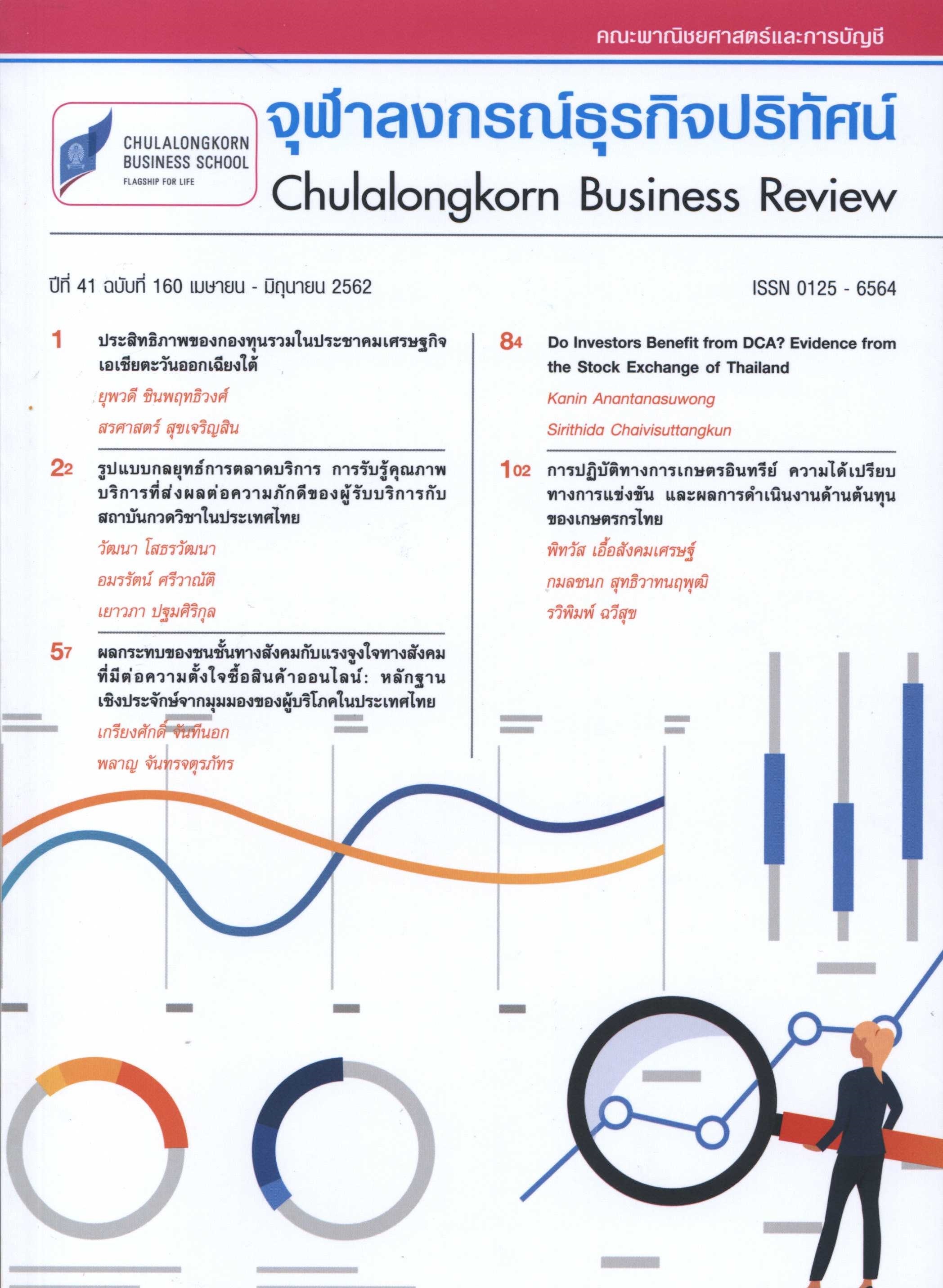Do Investors Benefit from DCA? Evidence from the Stock Exchange of Thailand
Main Article Content
Abstract
This study empirically evaluates the effectiveness of dollar cost averaging (DCA) and its alternative strategies in the Thai stock market both in term of mean variance efficiency and downside risk. With one-year investment horizon, we find that, despite being less risky, DCA strategy is inferior to other alternatives such as lump sum and asset allocation in term of Sharpe ratio. The result regarding downside risk, measured by Sortino ratio, is inconclusive as the ratio for DCA has a higher mean but lower median than lump sum and asset allocation. Finally, we create indices that reflect the wealth investing in each of the strategy. Over our sample period, while DCA leads to a less value of terminal wealth, it fails to prevent the investor’s wealth from a huge loss during the 2008 financial crisis. This failure may be due to the seasonality of the returns in the stock market.
Article Details
Opinions and discussions in papers published by the Creative Business and Sustainability Journal (CBSJ) are deemed as personal opinions and the responsibility of the writers. They are not the opinions or responsibility of the Chulalongkorn Business School of Chulalongkorn University.
Papers, content, information etc. appearing in the Journal are deemed to be the copyright property of the Chulalongkorn Business School of Chulalongkorn University. Anybody or any organization that wishes to publish any part of them or use them in any way must obtain written permission from the Chulalongkorn Business School, Chulalongkorn University.


